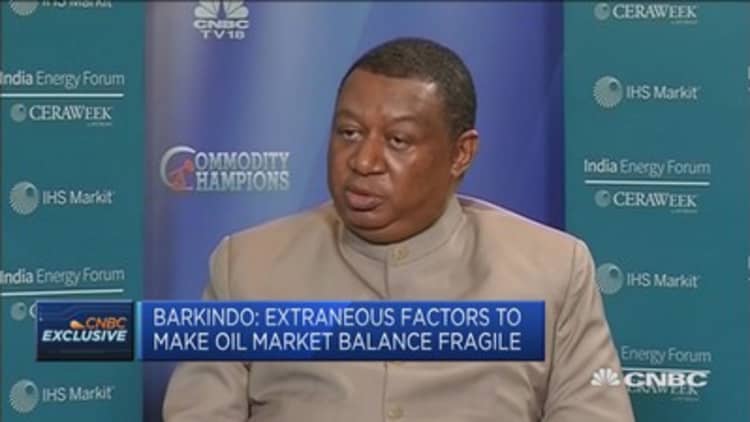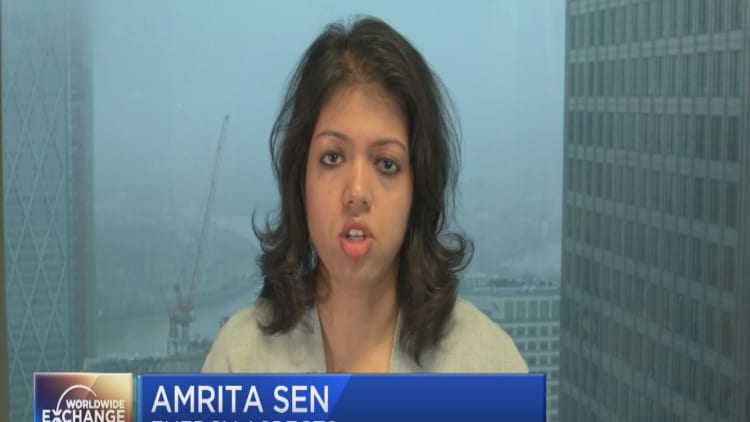Oil prices fell on Wednesday, with U.S. futures dipping below $70 a barrel for the first time in a month, after U.S. stockpiles rose by 6.5 million barrels, almost triple what analysts had forecast, while exports dropped.
Brent crude was down $1.31, or 1.6 percent, at $80.10 a barrel by 2:28 p.m. ET, after gaining $1.15 over the previous three sessions. The global benchmark is trading nearly $7 below a four-year high of $86.74 reached on Oct. 3.
U.S. light crude oil ended Wednesday's session down $2.17, or 3 percent, at $69.75.
Oil had been rising on worries about Iranian sanctions and tensions between the United States and Saudi Arabia after the death of Saudi journalist Jamal Khashoggi.

U.S. crude stocks rose 6.5 million barrels last week, the fourth straight weekly build, as exports were down to 1.8 million barrels per day, the U.S. Energy Information Administration said, in a report analysts characterized as bearish.
Inventories rose sharply even as U.S. crude production slipped 300,000 bpd to 10.9 million bpd last week, which analysts attributed to the effects of offshore facilities closing temporarily for Hurricane Michael.
"A tick higher in refining activity and a drop in production due to hurricane activity in the Gulf was not enough to halt a fourth consecutive climb in stocks — and a solid one at that," said Matt Smith, director of commodity research at ClipperData in Louisville, Kentucky.
The scandal over the disappearance of prominent Saudi critic and journalist Jamal Khashoggi, who disappeared two weeks ago after entering the Saudi consulate in Istanbul, had underpinned oil markets earlier in the week.
U.S. lawmakers pointed the finger at the Saudi leadership, suggesting sanctions could be possible.
Western pressure mounted on Riyadh to provide answers, but President Donald Trump's comments suggested that White House may not take additional action against the Saudis, particularly after Saudi Arabia said it will conduct an investigation.

On Wednesday, Trump denied that he is giving cover to the Saudis, and that the results of the investigation into Khashoggi's death should be known within a week.
Investors worry Saudi Arabia could use oil supply to retaliate against critics.
Jim Ritterbusch, president of Ritterbusch and Associates, said Saudi Arabia could cut as much as 500,000 bpd of crude production "as a warning shot" to discourage U.S. sanctions.
A claim by the United States that it aims to reduce Iran's oil exports to zero is a "political bluff," the head of the state-run National Iranian Oil Company was quoted as saying.
New U.S. sanctions on Iranian oil exports start on Nov. 4, while Iran has accused Saudi Arabia and Russia of breaking an OPEC-led agreement on output cuts by producing more crude.

